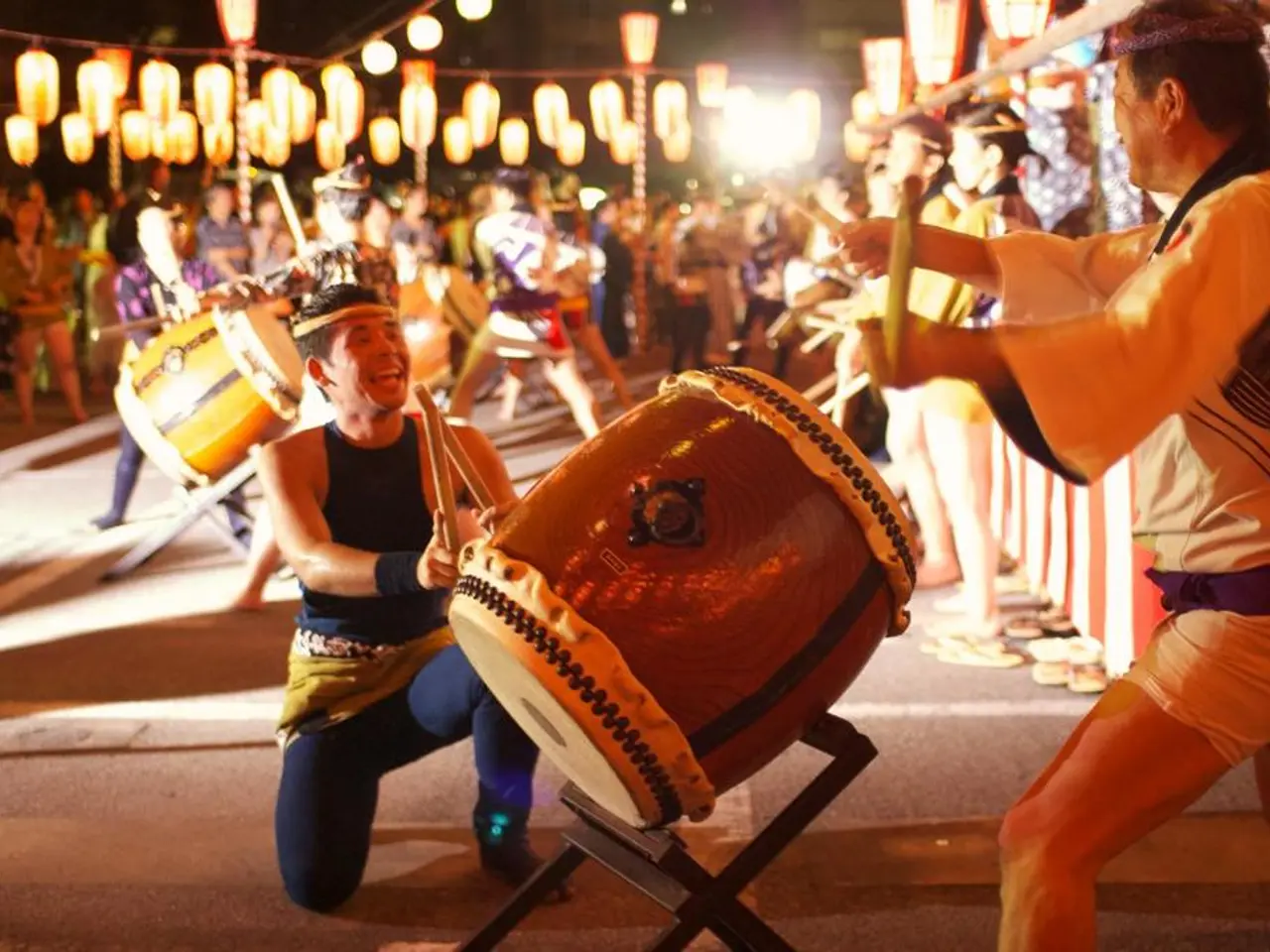Gather in Jarocin: Poland's former communist music festival transformed into a contemporary cultural rebellion
Jarocin Festival: A Journey Through Time and Music
The Jarocin Festival, originally known as Wielkopolskie Rytmy Młodych (Wielkopolska Rhythms of the Young), was born in 1970 as a regional music competition for amateur rock bands in Poland. It quickly grew in popularity, attracting young people from all over the country[1].
In the 1980s, Jarocin gained a unique status as one of the few officially tolerated spaces where rock and punk bands could freely express artistic and socio-political dissent under Poland’s communist regime. It became a significant cultural and political phenomenon, serving as a voice against authoritarianism, censorship, and social repression[1][2][5].
During this period, the festival offered a subversive voice for Polish youth during and after martial law, fostering iconic Polish punk and rock bands like Dezerter, Kult, and Armia[1][2][5]. It was during this time that the festival changed its name and evolved into a platform for alternative and underground music[1].
Following the fall of communism in 1989, Jarocin underwent a transformation: its original role as a sanctuary from repression diminished, but it sustained its alternative spirit by blending nostalgia with contemporary music styles including punk, rock, indie, and hip-hop[1][3][4]. Today, the festival remains a vital cultural event honoring its heritage while supporting independent musicians and alternative voices. It functions not only as a music festival but also as a living archive reflecting Poland’s socio-political changes and evolving youth identities[1][3][4].
The festival is now organized by the Good Taste Production agency from Poznan, which also manages other festivals such as NEXT FEST, SALT WAVE BY PORSCHE, and BITTERSWEET Festival[4]. Despite the heavy, alternative music played by many bands, the festival maintains a family-friendly atmosphere[3].
One of the bands that qualified to perform on the small stage this year is Wirefall, who play alternative, alternative metal, or new metal, as explained by Tomasz Piesiak[3]. Many bands at the festival are planning to bring their families to future performances.
Alongside the music, there are accompanying events and an exhibition to bring the events from the communist era closer to the audience[2]. Darek Malejonek, also known as "Maleo", was one of the first acts to perform at Jarocin in 1984[2].
The Jarocin Festival is considered part of Poland’s cultural heritage, with documentaries, exhibitions, and academic studies dedicated to its history[1]. It symbolizes youth rebellion and artistic freedom throughout its history, and continues to be a prominent, dynamic contemporary music festival in democratic Poland[1].
References: 1. Jarocin Festival 2. Jarocin Festival: A Subversive Space 3. Wirefall to Perform at Jarocin Festival 4. Good Taste Production 5. Dezerter, Kult, and Armia: Iconic Polish Bands Born at Jarocin
- The Jarocin Festival, now managed by Good Taste Production, has evolved from a music competition for amateur rock bands into a platform for alternative and underground music, including punk, rock, indie, and hip-hop.
- Initially gaining fame as a space for artistic and socio-political dissent under Poland's communist regime, the Jarocin Festival played a significant role in the rise of iconic Polish punk and rock bands like Dezerter, Kult, and Armia.
- Apart from music, the festival features accompanying events and an exhibition that bring the communist era closer to the audience, and it is considered part of Poland’s cultural heritage, with many documentaries and academic studies dedicated to its history.
- Today, the family-friendly festival not only presents an array of contemporary music styles but also honors its heritage while supporting independent musicians and alternative voices.




